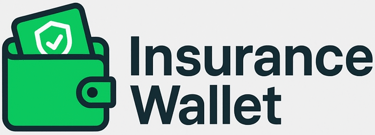Mis-selling in Motor Insurance – Risks & Penalties
Motor insurance is a mandatory product, which makes it highly competitive. Unfortunately, this also creates scope for mis-selling—where customers are sold policies that do not suit their needs, or where facts are hidden to push a quick sale.
The IC-72 Motor Insurance text and IRDAI regulations stress that mis-selling is a serious ethical and legal violation, carrying risks for customers, agents, and insurers alike.
🔎 What is Mis-Selling in Motor Insurance?
Mis-selling happens when:
A policy is sold without full disclosure of terms, exclusions, or limitations.
The cover is unsuitable for the customer’s needs.
Agents make false promises about claim settlement.
Premium is collected but policy issuance is delayed or mishandled.
👉 Example: Selling only a Third-Party Only Policy to a customer buying a brand-new car without explaining that own damage (OD) cover is missing.
⚠️ Risks of Mis-Selling
1. For Customers
Inadequate cover → heavy out-of-pocket expenses.
False expectations → disputes at the time of claim.
Loss of trust in insurance as a whole.
2. For Agents/Intermediaries
Loss of credibility and renewals.
Blacklisting or cancellation of agency license.
Possible legal liability if mis-selling leads to financial loss for the customer.
3. For Insurers
Increased grievances and complaints to IRDAI or Ombudsman.
Penalties and scrutiny from regulators.
Reputational damage leading to loss of market share.
⚖️ Penalties for Mis-Selling
As per IRDAI (Protection of Policyholders’ Interest) Regulations and the Consumer Protection Act:
Regulatory Action by IRDAI
Insurers/agents can face fines, suspension, or cancellation of license.
Companies can be penalized for systemic mis-selling practices.
Consumer Court Action
Mis-selling is treated as an “Unfair Trade Practice”.
Customers can claim compensation for losses + mental harassment.
Civil & Criminal Liability
In extreme cases, misrepresentation may attract fraud charges.
👉 Example: If an agent promises “all accidents are covered” but policy excludes consequential engine loss, customer can approach Ombudsman or Consumer Court. Insurer may be ordered to pay, and the agent can be penalized.
✅ How to Prevent Mis-Selling
Do a proper Need Analysis – Suggest suitable cover (Comprehensive, Add-ons) based on vehicle type, usage, and customer profile.
Be Transparent – Always explain exclusions, deductibles, and claim process.
Issue Policy Promptly – Avoid delays or cover note misuse.
Document Communication – Provide brochures, SMS/email confirmations.
Adhere to Code of Conduct – As outlined by IRDAI for all agents.
🎯 Conclusion
Mis-selling may bring a short-term sale, but it leads to long-term losses—for the customer, agent, and the insurer. The insurance business thrives on trust, and ethical selling is the only sustainable way forward.
👉 Pitch Line for Agents:
“Sell insurance as a solution, not just a product. Mis-selling might close today’s deal, but honest selling secures tomorrow’s relationship.”
